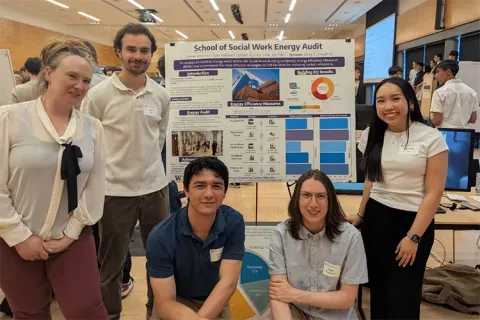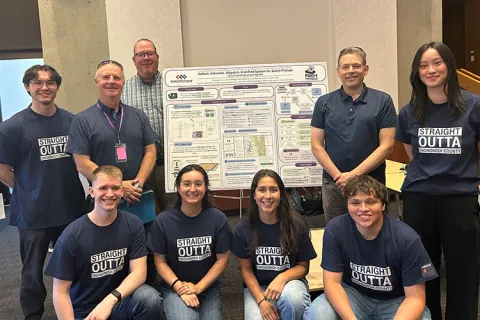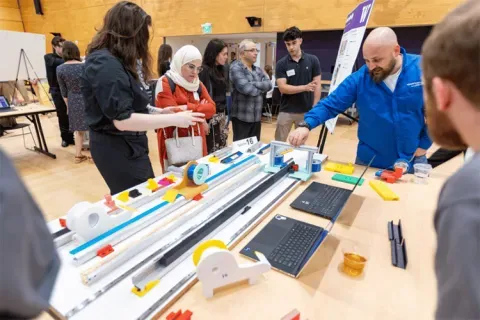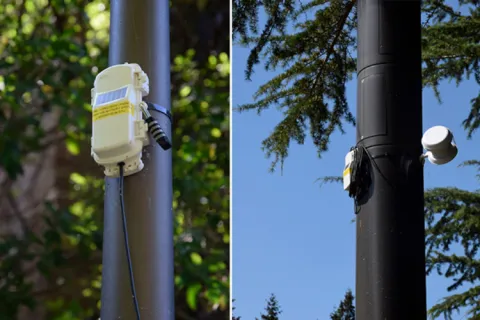National Security Innovation Network (NSIN)
Optimize Radome Heating
NSIN is a network in the U.S. Department of Defense (DOD), aimed at connecting DOD entities with academic and venture partners to innovate new solutions for DOD-member challenges. New Boston Space Force Station's (NBSFS) radomes are heated with fuel oil in the winter, expensive and an ever-increasing risk to resiliency, particularly considering current events in eastern Europe. Two of NBSFS' radomes are also de-humidified to, presumably, prevent interior condensation. There is no specific Primary Mission Equipment (PME) temperature requirement driving the radome interior temperature, as all the PME is located in an equipment room inside the radomes, which is controlled separately from the radome interiors. This student team worked to reduce the wintertime temperature set point in the NBSFS radomes from 45°F to 35°F, which would save ~10% of the annual fuel oil requirement. This student team also sought to prevent interior condensation freezing as well as help diminish external snow build up. Ideally, this student team worked to create or identify one point on the interior of the radome which could be used to regulate the requisite temperature, and thereby save fuel oil and reduce the NBSFS carbon footprint; the “smart point” could be measured/monitored, e.g., with infrared, and the regulation logic would be modeled as a function of outside air temperature, interior humidity, weather, sunshine, snow accumulation, etc. Tasks the student team worked to accomplish included: [1] review the literature, conduct analyses and modeling, to establish a notional “smart point”, if possible [2]develop the logic for controlling the radome interior temperature to achieve the objective of minimizing fuel oil for heating while maintaining the required radome mission performance.
Faculty Adviser(s)
Eli Patten, Mechanical Engineering
Related News

Mon, 10/13/2025 | UW Mechanical Engineering
Capstone collaboration leads to award
An ME capstone team received first place for its energy audit of the UW School of Social Work building.

Thu, 07/17/2025
UW engineering students develop smart ballot solution
UW engineering students develop smart technology solution to improve ballot collection for Snohomish County.

Mon, 07/07/2025 | UW Mechanical Engineering
Capstone creations
Students displayed innovative capstone design projects at the 2025 expo.

Fri, 09/20/2024 | UW Civil & Environmental Engineering
Smarter irrigation for a greener UW
A new project combines satellite data with ground sensors to conserve water and create a more sustainable campus environment.